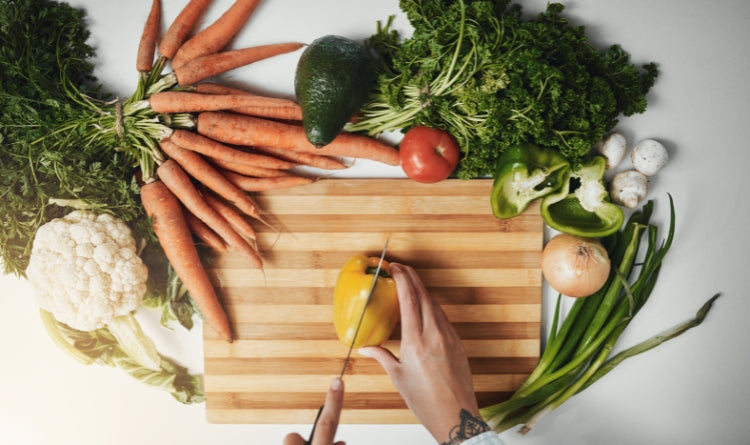10 Eco-Friendly Cooking Habits to Try
Who can resist a home cooked meal? These meals are often tastier and healthier than their takeout counterparts. Plus, they’re usually cheaper! But if you’re finding that your foray into home cooking is producing too much food waste, don’t worry. We have 10 tips to help make your cooking even more eco-friendly. Let’s dive into how to add a little “green” to your culinary adventures.


Simple Ways to Go Green in the Kitchen
- Try Plant-Based Meals: Incorporate more plant-based meals into your cooking routine. Plant-based diets generally have a lower environmental impact than meat-based diets. To get started, try “meatless Mondays” where you stick to a vegetarian or even vegan dish each Monday.
- Stick to Local and Seasonal Ingredients: Choose locally sourced and seasonal ingredients whenever possible. Doing so helps to support local farmers and reduce the carbon footprint associated with transporting food over long distances. (Or try making your own seasonings!)
- Work to Reduce Food Waste: Food waste is one of the least eco-friendly effects of cooking. Fortunately, you can reduce food waste by planning your meals and storing food properly. It’s also worthwhile to find creative ways to use leftovers. Composting organic waste is another eco-friendly option.
- Energy-Efficient Appliances: Use energy-efficient kitchen appliances to reduce energy consumption. Opt for appliances with high energy ratings or consider alternative cooking methods like slow cooking or pressure cooking.
- Reusable Cookware and Utensils: Invest in durable, reusable cookware and utensils. Look for eco-friendly materials like stainless steel, cast iron, or bamboo, avoiding single-use plastics.
- Water Conservation: Be mindful of water usage by defrosting food in the refrigerator and using a dishwasher efficiently. You can even collect and repurpose water used for rinsing fruits and vegetables.
- Mindful Cooking: Cook in smaller batches to avoid excess energy consumption. Consider using lids on pots and pans to speed up cooking times.
- Homemade Cleaning Solutions: Make your own eco-friendly cleaning solutions using ingredients like vinegar, baking soda, and lemon to reduce reliance on harsh chemicals that can harm the environment.
- Organic and Non-Toxic Ingredients: Choose organic and non-toxic ingredients to support sustainable farming practices. They also help to reduce exposure to harmful pesticides.
- Composting: Create a composting system for kitchen scraps, such as vegetable peels and coffee grounds. This will produce nutrient-rich compost for your garden, reducing the need for synthetic fertilizers.
Looking for more tips to make your lifestyle even healthier? Check out our guide to using the 4x2 method for grocery shopping and meal planning.








